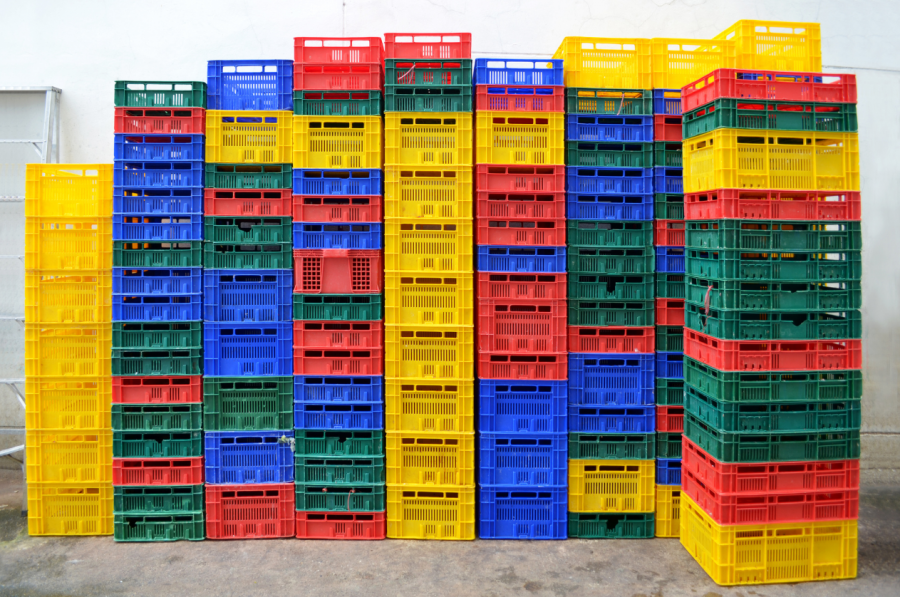With all its versatile properties and wide range applications, plastic has become an essential part of modern life. From life-saving medical devices to convenient food packaging, plastic has revolutionized numerous industries. However, as the use of plastic continues to rise, so does its unfavorable impact on the environment. In the quest to reduce the negative environmental impact of plastic waste, innovators and scientists have been exploring various alternatives to plastic. As concerns about climate change, pollution, and resource depletion grow, the need for eco-friendly solutions becomes increasingly necessary. This article will delve into the world of alternative materials, examining their benefits, limitations, and potential applications.
What are the sustainable alternatives to oil-based plastic?
Let’s explore the sustainable alternatives to oil-based plastic and how they can contribute to a circular and more sustainable future.
Bioplastics
Bioplastics, a promising alternative to traditional oil-based plastics, are made from renewable biological sources such as plants, algae, or even microbial fermentation processes. These eco-friendly materials have gained significant attention due to their potential to reduce our reliance on fossil fuels and lower carbon emissions.
However, it is important to acknowledge that not all bioplastics are created equally. Factors such as biodegradability, compostability, and their impact on recycling systems must be carefully considered to ensure that bioplastics effectively contribute to a prosperous future.
Recycled Plastic
Recycled plastic is another viable alternative to virgin oil-based plastic. Recycled plastic involves the process of collecting, sorting, cleaning, and reprocessing used plastic materials into new reusable products. By incorporating recycled plastic into manufacturing, we can conserve resources, reduce waste, and decrease greenhouse gas emissions.
Companies and consumers alike are increasingly recognizing the environmental benefits of reusing discarded materials, leading to a growing demand for products made from recycled plastic. Recycled plastics are made from post-consumer waste, which reduces the amount of plastic waste that ends up in landfills or the environment. Upcycled materials can be used to create a wide range of products, from water bottles to clothing.
Challenges include the lack of waste management which makes it crucial to improve recycling infrastructure in cities and municipalities and raise public awareness to maximize the positive impact of this material.
UBQ™ Material
UBQ™ material is a groundbreaking solution in the realm of sustainable alternatives to virgin oil-based plastic. This climate-positive thermoplastic is made entirely from household waste, including organic and unrecyclable materials – everything from banana peels and chicken bones to used diapers and mixed plastics. Differently from oil-based plastics, this material is made from the entire municipal waste stream, with no need for separation.
By converting waste destined for landfills or incineration into a useful raw material, UBQ helps tackle the waste crisis, prevent emissions and reduce reliance on fossil fuels. Every ton of this waste-based material can replace one ton of oil-based plastics. Brands and manufacturers across industries are replacing oil-based plastic with UBQ™ to reduce the carbon footprint of new and existing products.
Plastic Uses in Manufacturing
Plastic has long been a vital material in manufacturing, thanks to its lightweight properties, adaptability, durability, and cost-effectiveness. However, the search for alternative materials that can replace plastic is gaining momentum as industries worldwide strive to reduce their carbon footprint and achieve the climate goals they’ve already committed to.
Alternatives to oil-based plastics are being developed and pursued, exploring biodegradable plastics and climate-positive materials that can create high-quality products. These alternatives not only work in harmony with the environment, but also reduce waste and greenhouse gas emissions such as carbon dioxide and methane, as compared to petroleum-based plastic. By implementing these alternatives, we can reduce our impact on the planet and achieve circularity.
Building & Construction
Companies in the building and construction industry are turning to more sustainable materials that can substitute resource-depleting materials. This shift prioritizes the health of our planet and accelerates a circular economy that minimizes waste and promotes reuse.
The building and construction industries are responsible for 39% of global carbon emissions according to the World Green Building Council. The use of recycled plastic in building materials can reduce carbon emissions by up to 50%. Additionally, the use of recycled plastic diverts waste from landfills, where it can take hundreds of years to decompose. As a result, this industry can significantly reduce its carbon footprint while creating a circular economy that promotes resource reutilization. By embracing these plastic alternatives, businesses can contribute to renewable resource utilization.
By incorporating UBQ™ into the construction sector, carbon emissions can be significantly reduced. In 2018, the building industry produced 39% of energy and process-related CO2 global emissions. The World Green Building Council has issued a call to reduce embodied carbon by 40% by 2030 in new and renovated buildings and to reach net-zero embodied carbon by 2050. With UBQ™, the environmental impact of our built environment can be dramatically minimized, leading to a future where sustainability takes center stage in the construction industry.
UBQ™ is already being used for a wide rage of applications including decking, flooring, wall cladding, shock pads, semi-finished sheets, decorative surfaces, sheets, substrates, and partitions.
Logistics and Supply Chain
In the logistics and supply chain sector, the adoption of eco-friendly alternatives to plastic is becoming increasingly important for reducing the negative environmental impact across supply chains. Using alternative materials, such as UBQ™, recycled or biobased plastics, help reduce
reliance on virgin oil-based plastic while decreasing emissions and waste sent to landfills or incinerators. Global companies such as PepsiCo, ABinBev and Osem-Nestle, are implementing UBQ™ in shipping pallets, crates, and other secondary packaging solutions. The transition to eco-friendly alternatives in the logistics and supply chain industry not only benefits the environment but also demonstrates the commitment of global companies toward a circular economy and responsible business practices.
Retail
With the incorporation of biodegradable plastics, recycled plastic materials, and innovative alternatives like UBQ™, retailers can offer consumers environmentally conscious options.
UBQ Materials is at the forefront of this transition, providing the retail industry with a climate-positive material that can replace traditional resins in various applications such as garment hangers, dressing rooms, partitions, display stands, and more.
The fashion industry’s contribution to global greenhouse gas emissions accounted for around 4% in 2018 and while most of the focus has been on textile waste, retail items like clothes hangers have an overlooked contribution to this carbon footprint. Despite being reusable, these hangers are frequently discarded after just one use, resulting in an estimated production of 8-10 billion metal and plastic hangers annually, with only 15% being recycled.
To address this issue, the industry is exploring various solutions, including reuse and recycling programs, as well as the adoption of more sustainable materials. Mainetti, the world’s largest garment hanger company, is at the forefront of this movement, offering hangers made with UBQ™.
Automotive
The automotive industry is also making significant strides in replacing plastic with eco-friendly alternatives. A survey by SAP and Oxford Economics revealed that manufacturing executives in the automotive industry are leading the way in taking action to increase sustainability. By utilizing materials that were made in harmony with the environment, OEMs can significantly decrease their reliance on non-renewable sources and their carbon footprint.
From redesigning processes to building new plants for electric vehicle production, these industry players are driving meaningful change. The automotive industry is implementing different practices towards a more sustainable economy. Many notable brands are reducing the weight of their vehicles, which helps reduce fuel usage and waste. Additionally, studies predict that over 50% of all passenger vehicles will be electric. The demand for sustainable vehicles is expected to increase rapidly and beyond just electric.
UBQ™ is a leading innovator and a game-changer in the automotive sector. Companies like Mercedes-Benz are partnering with UBQ Materials to achieve their carbon reduction goals and the footprint of their vehicles.
By incorporating UBQ™ as a material for car pars, the automotive industry can divert municipal solid waste from landfills and incineration, prevent methane emissions, and significantly lower carbon dioxide emissions.
Home and Garden
The home and garden sector is responding to the growing demand for ecological products by adopting climate-positive alternatives to plastic. Practices such as minimalism, re-sourcing, and restoration of vintage pieces are being promoted in the industry. Design trends focus on reducing the consumption of non-renewable resources, minimizing waste, and creating healthy, natural environments. By utilizing biodegradable plastics, recycled plastic, and innovative alternatives like UBQ™, the home and garden industry can offer a climate-resilient and more responsible product and material range.
In the United States, furniture waste has increased by nearly 50% between 2000 and 2018. According to the Furniture Industry Research Association, common furnishings are responsible for up to 90kg CO2eq each by the time they leave the factory. UBQ Materials enables furniture manufacturers to create household items such as chairs, tables, closets, sheds, and more, all while meeting sustainability objectives to reduce their carbon footprint. The home and garden sector’s adoption of eco-friendly alternatives to plastic, allows for a more sustainable development.
UBQ as a plastic substitute:
As a sustainable plastic substitute, UBQ™ brings numerous advantages to the table. It helps conserve finite resources, prevents emissions, and contributes to a circular economy by transforming waste into valuable material. Companies that choose to incorporate UBQ™ into their products demonstrate a strong commitment to reducing their environmental footprint across their supply chain and in multiple industries.
UBQ Materials is set to redefine the way businesses approach the use of plastic, driving innovation and environmental responsibility. By adopting UBQ™ and other plastic alternatives, businesses can contribute to a cleaner future where resources are utilized responsibly and waste is seen as valuable material.


